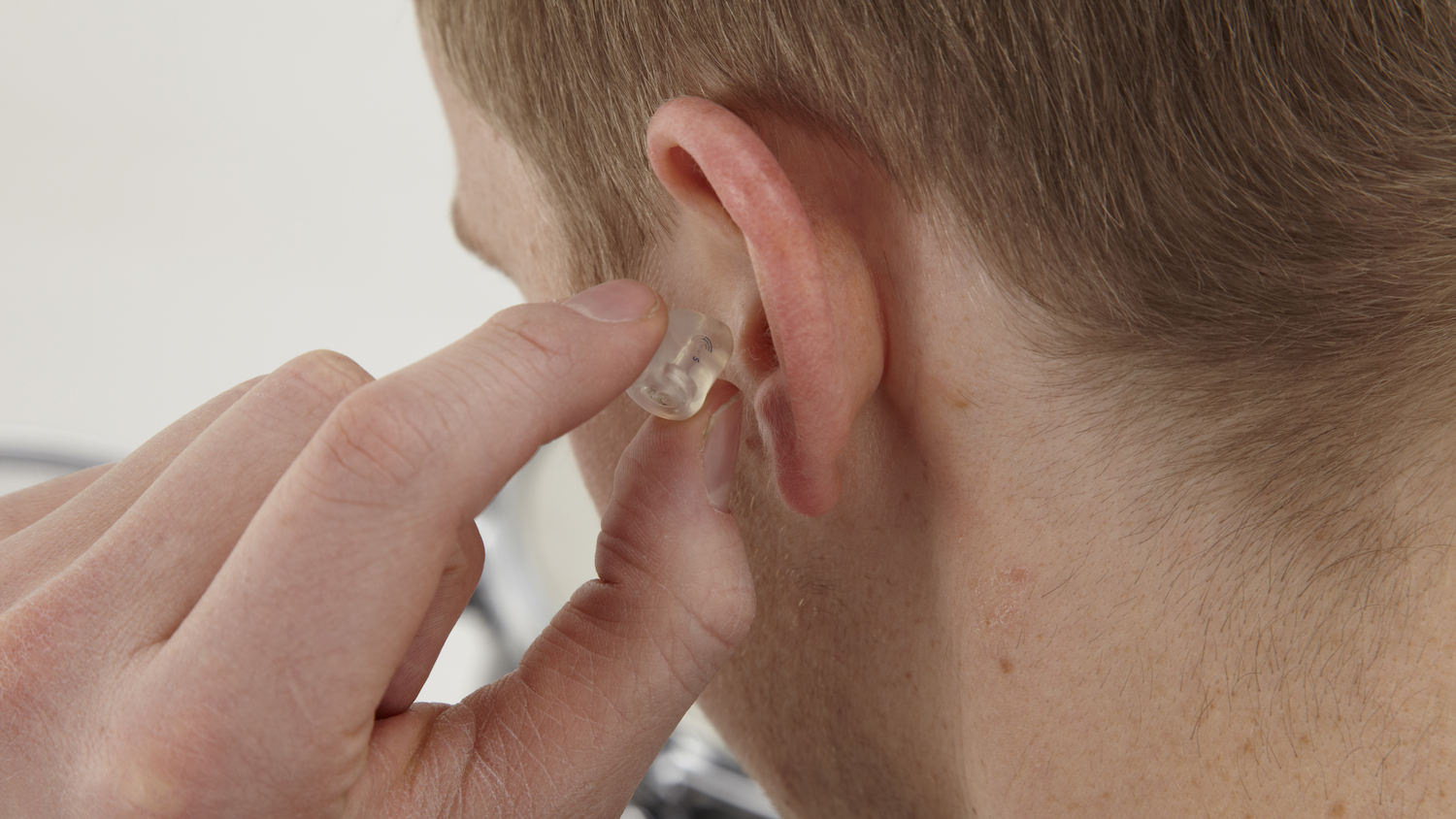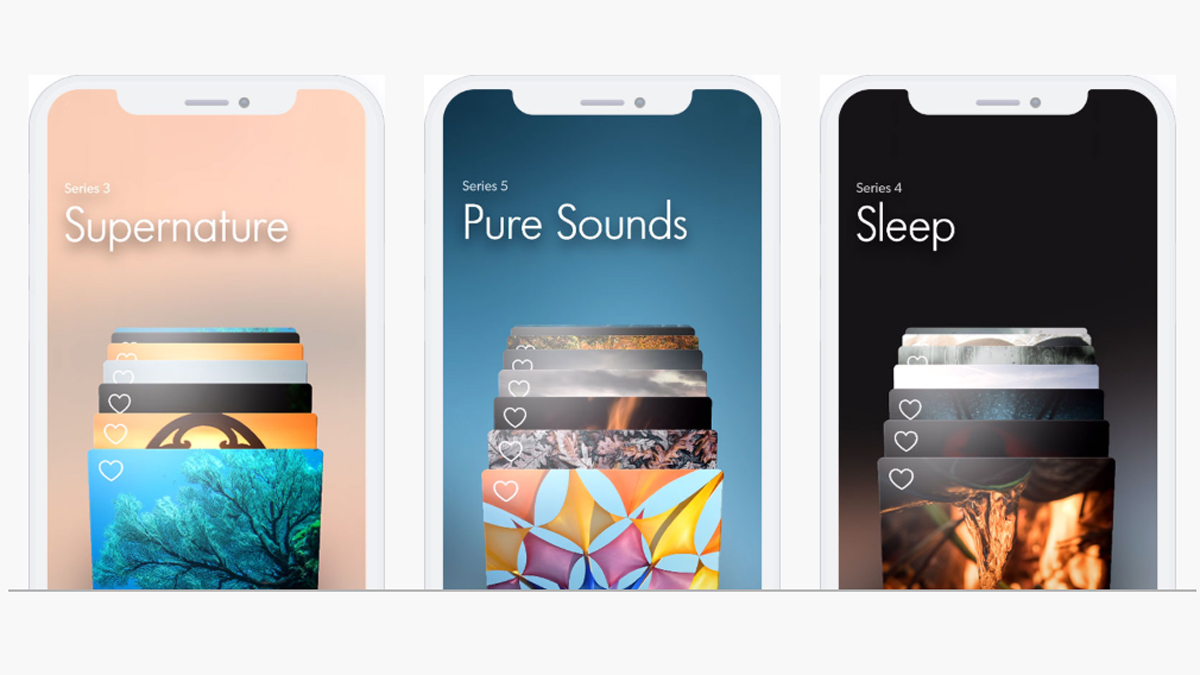Tinnitus - 5 ways for musicians to deal with it: “It’s important to understand that you are not alone”
Composer Rupert Brown, creator of the T-Minus app, offers his personal advice

We had a huge response to our article on T-Minus, a new app that’s designed to help ease the symptoms of tinnitus. So, we asked the app’s creator - composer Rupert Brown, who suffers from tinnitus himself - to offer five pieces of advice for musicians who are affected by the condition.
Have you ever come back from a gig or rehearsal and experienced the sounds of ringing, buzzing, whirring, hissing and other such anomalies? If the answer is yes, then you have experienced tinnitus.
If you’ve never had this happen to you before, then the chances are that, if it does, it’s likely to be temporary (could be hours, days, weeks or months). If this has happened many times, though, then I feel the need to warn you.

5 essential tips to beat ear fatigue and protect your hearing
Exposure to loud sounds (musical or not) can damage the tiny hair cells inside your inner ear. When the individual suffers a certain amount of hearing loss, then the brain begins to overcompensate for the loss of signal by turning up the hearing system’s volume, which in turn amplifies the healthy ear cell. This also magnifies external random noises which we hear as ringing or other such white noises.
I am not a hearing expert, but you could say that, having had eight different simultaneous tinnitus sounds and hyperacusis, that I am an expert at having tinnitus. The following represents my personal thoughts and advice to anyone who’s suffering from similar symptoms.
1. Give your ears a break
If this is the first time you’ve experienced these strange noises or noise in your head, then I would give yourself a few days off or a week without exposing yourself to overly loud sounds. Your auditory system has to have a break from this exposure every now and again, as most people working in this industry will understand this themselves; from the A&R guys at gigs every night, to the producers/engineers listening in headphones or loud playback speakers.
It feels hard to justify until you have experienced tinnitus, but give your ears a break.
Want all the hottest music and gear news, reviews, deals, features and more, direct to your inbox? Sign up here.

2. Use ear protection
The next thing I would do is to get some good quality earplugs (our guide to the best earplugs for musicians can help). The importance of ear protection cannot be emphasised enough. Help Musicians UK supports musicians by subsidising the cost of personalised moulded ear plugs and hearing check-ups via their Musicians Hearing Health Scheme. For non-musicians, you can find local places online, and I would recommend something moulded to your ear.
Try to think about the types of loud places or gigs, clubs etc that you may want to protect your ears from and don’t forget to take your plugs with you.
If the noise of tinnitus persists, then I would urge you to do several things:
3. Get medical help
Phone the doctor at the first moment you sense that the tinnitus is not going away. There is a very clear path to wellness that you can take via the conventional methods.
The GP (Doctor) will be able to refer you to two types of clinical professional: the Audiologist and the ENT (Ear, Nose and Throat) Consultant. In my experience, and through speaking with a number of audiologists and ENTs, there appears to be a trend that people will get sent to ENT first. I would ask for that appointment, but also ask to see the audiologist ASAP, as they tend to have appointments earlier (if you’re in the UK, this may vary depending on your local NHS).
The audiologist will be able to give you a hearing test and then work out a route to deal with the tinnitus symptoms. I think it’s incredibly important to seek this kind of help quite quickly as anxiety and other issues can complicate the habituation time.
The ENT will look for physical treatable issues causing the tinnitus, such as a build-up of ear wax or an ear infection. Unfortunately, in many cases there is nothing there for them to treat, so they have to send you away with what appears to be fairly little help.
4. Get support
Seek out positive support and advice. I found that audiologists and hearing therapists can help you begin to understand how habituation can occur. It’s important to understand that you are not alone; there is not a validated cure out there so now it’s time to learn to manage the symptoms as many other people are also trying to do. These professionals can offer great advice and lifestyle choices to minimise any suffering, and many also run local tinnitus support groups. The British Tinnitus Association website can guide you to many of those.
With some help and advice, I leant into what I know best: music.
It took months for me to begin tuning out the tinnitus noises and start the habituation process - a natural process of the brain adjusting to the presence of tinnitus - because my fear of sounds was so difficult to overcome. When I originally saw my local ENT (about 25 years ago - fortunately they are much better now) I sat in the waiting room ready to go in, only to overhear him ending his phone conversation with: “I’ll just get rid of this one and I’ll see you on the golf course”!
Obviously already a little sceptical, I went into his room, described my tinnitus injury and music career and presented my symptoms to him. He asked me: “Do you need to hear the music?” I couldn’t believe what he was saying. “Yes, of course,” I replied. “Well, you will have to stop playing, then.” And that was the end of that appointment!
In many ways, I am grateful to that man as it meant that I had to seek out my own ways to deal with the condition. With some help and advice, I leant into what I know best: music.

5. Try sound therapy
My last piece of advice is based on what helped me and what inspired the work I do now with T-Minus.
Sound therapy, particularly when combined with CBT or hearing therapy, can be a potent mixture when helping to manage tinnitus. I recommend slowly reintroducing sounds into your daily life; learn to expose yourself to those sounds that may have become uncomfortable. I have tried to re-frame both beautiful and challenging sounds in a positive way, throughout the T-Minus sound therapy series.
Listen whenever you don’t have other distractions and set the volume just below that of your own tinnitus. By doing this, it is suggested that you can bring your own tinnitus volume down. It is also part of the habituation process that we all have to go through and taking back control of your auditory environment.
I can sleep, I can continue my music career, I can go out with friends and go to gigs (with my earplugs) and I live a totally normal life.
I recommend this to you because it has worked for me and many others. When previously I would have rated my tinnitus 10/10 I now have a manageable 2/10 and I don’t even notice it much of the time. I can sleep, I can continue my music career, I can go out with friends and go to gigs (with my earplugs) and I live a totally normal life.
At T-Minus we have worked (and continue to work) really hard to release the sound therapy library (you can listen to it on Spotify) and improve our ever-evolving app. The T-Minus app houses the music therapies as well as a number of other features, including additional sound controls. These have an array of coloured noises including blue noise, white noise, pink and brown noise, plus a main master fader for the volume of the music mix and the frequency pure tone generator, ranging from 200Hz to 12,000Hz. The app also contains tinnitus FAQs and a journal to track your tinnitus journey. These are very powerful tools indeed for the tinnitus sufferer.
After experiencing the music therapy, one hearing therapist who also has tinnitus said to me:
“I hide inside the cocoon of your sounds and my tinnitus can’t find me!”.
You can download T-Minus from the Apple App Store.

